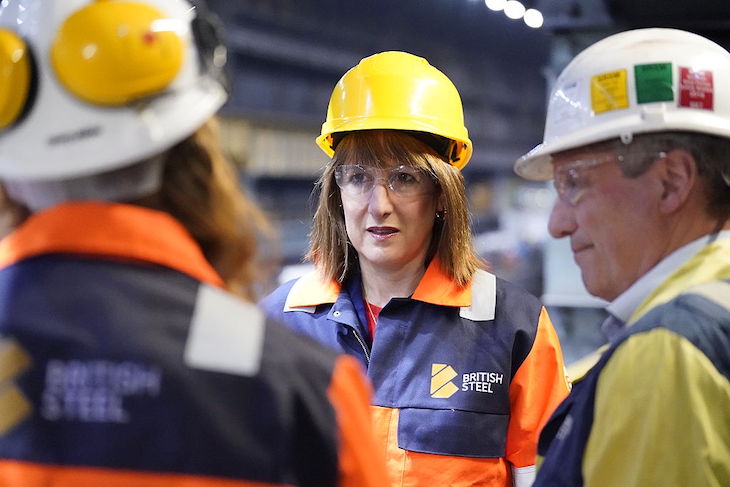Britain borrowed nearly £152 billion in the financial year to March – almost £21 billion more than at the same point in the last financial year, according to the Office for National Statistics (ONS). The latest public finance figures reveal that borrowing in March was the third highest since records began in 1993. Crucially, it’s also nearly £15 billion more than what the Office for Budget Responsibility (OBR) had expected for this point in the financial year. The £9.9 billion headroom Rachel Reeves left herself at the Spring Statement already looks to be in serious doubt.
The current budget deficit, which is borrowing to fund day-to-day spending and the metric used to judge the Chancellor’s ‘ironclad’ fiscal rule, was nearly £75 billion. That’s around £13 billion more than 12 months ago and nearly £14 billion more than had been forecast by the OBR. Reeves has to get that down to zero by the end of the decade if she is to meet her fiscal rules.
In March alone we borrowed £16.4 billion – some £2.8 billion more than March last year and the third-highest March borrowing figure since records began in 1993. The amount the government brings in from taxes was up by £2.2 billion compared with last year, but this boost to government income was dwarfed by inflation’s effects on state pay and welfare spending. Departmental spending was up by over £3 billion ‘as pay rises and inflation increased running costs’, according to the ONS, while the benefits bill rose by some £2.5 billion.
With borrowing costs rising – even before the effects of Trump tariff turmoil is reflected in the figures – it has become impossible to see how the Chancellor can avoid major tax rises or deeper spending cuts in the Autumn if she is to balance the books and stick by her 'ironclad' rules.
Responding to this morning’s figures, Chief Secretary to the Treasury, Darren Jones, said that he would ‘tear out waste’ from the state. But he also repeated the line that the world was changing, making it harder to get the economy on an even keel. Whilst there’s no doubt that Trump’s tariff announcements and u-turns are wreaking havoc with the global economy, much of these spending rises are old news and a result of government policy domestically.
The figures make the Chancellor's visit to Washington even more difficult, especially given the downgrade to growth forecasts dished out by the IMF yesterday. The IMF expects's Britain's economy to grow by just 1.1 per cent this year and 1.5 per cent next year – flatlining on a per capita basis. They also see inflation significantly overshooting the two per cent target as a result of ‘regulated prices and energy costs’ – something that is a result of our tax-and-spend policies and Net-Zero zealotry. Labour can’t blame Trump for that.







Comments